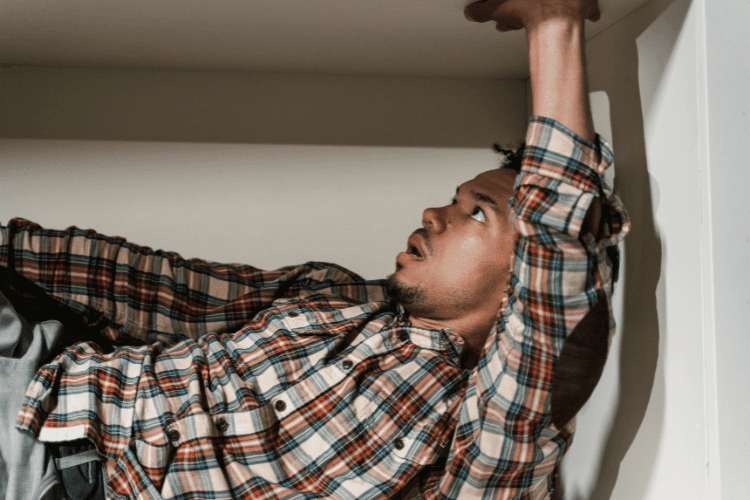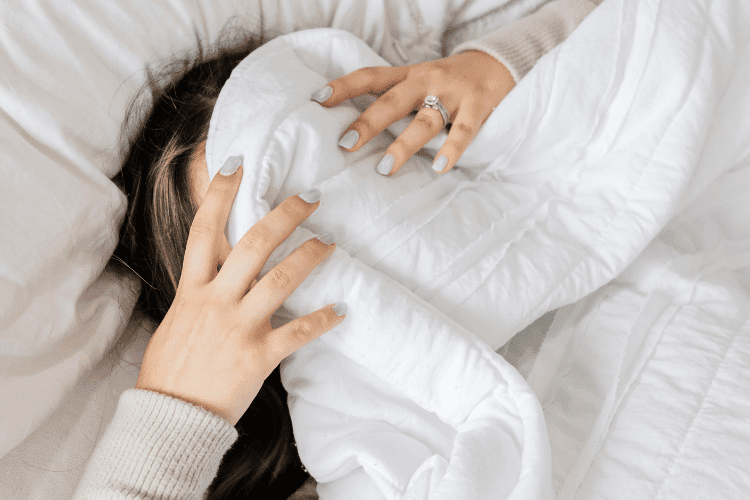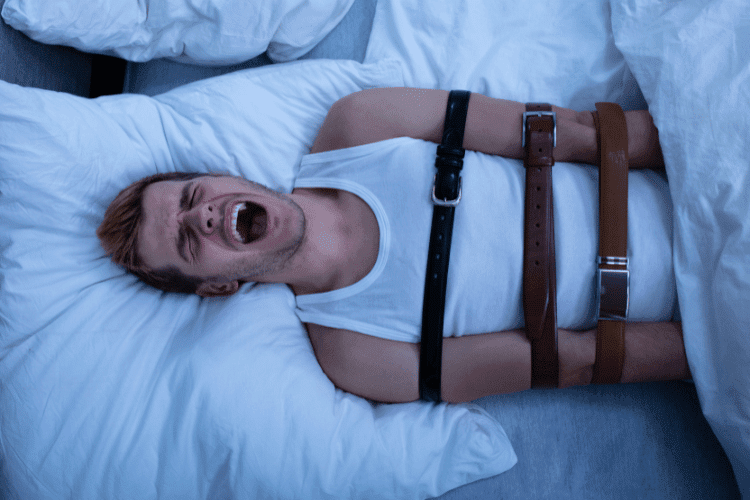Amidst countless dream themes, few resonate as deeply as ones of claustrophobia. Picture being trapped, confined, and the walls closing in.
These nightmarish scenes carry significant meaning as you navigate through your life’s daily stress. They offer a bridge to your deepest emotions, whether they’re feelings of guilt, powerlessness, or anxiety.
Stick around to learn more about understanding dreams of claustrophobia and their potential causes and effects.
Your dreams often draw inspiration from your daily life. Real-life situations can find their way into your subconscious mind and craft the scenes that play out in your dreams.
Claustrophobic dreams, too, can be a product of your experiences. These bad dreams can take place in various settings that trigger that tight, trapped feeling.
Think about narrow hallways that seem to stretch endlessly, closets that shrink as you step inside, or even being buried under a pile of objects.
These dreams often stem from your experiences with limited space, triggering that primal fear of being trapped and unable to escape.

Claustrophobia in dreams holds multiple meanings, from loss of control to your fear manifesting. Check out some of the possible dream interpretations below.
One of the prime factors behind claustrophobic dreams could be the underlying feeling of a lack of control. In your daily life, experiencing situations where you feel trapped or helpless can leave a mark on your subconscious.
These emotions might resurface as claustrophobic dreams. There, you find yourself struggling against the confines of tight spaces, symbolizing your feelings of vulnerability and anxiety.
Traumatic events can cast a long shadow, even reaching your dream world. A distressing experience involving confinement or a lack of control might lead to recurring claustrophobic dreams.
These dreams are a way for your mind to revisit and process those events, though they can also prolong the emotional issues.
Consequently, your subconscious mind is trying to make sense of what happened and find some form of resolution.
Claustrophobic dreams can be synonymous with feelings of anxiety. Those moments when you feel anxious or overwhelmed in your daily life can weave themselves into your dream.
Claustrophobic dreams are manifestations of these feelings of anxiety. You’re essentially trapped not only by physical walls but also by your fears and worries.
In some cases, claustrophobic dreams can be so intense that they trigger an anxiety attack within the dream itself.
The dream reflects your anxious thoughts, and those thoughts, in turn, intensify. This cycle can create a spiraling effect that immerses you in a distressing, vivid dream. It can lead to a heightened emotional response even after waking up.

Claustrophobic dream scenarios often signify feeling overwhelmed. These dreams, where you’re confined, symbolize the pressures of daily life closing in on you.
They reflect a need to regain control in situations that trigger a feeling of powerlessness. The feeling can stem from several aspects of your daily life, such as an unhealthy relationship or a dead-end job.
Claustrophobic dreams can also tap into a deeper fear – the fear of death. While not directly about dying, being trapped in dreams can symbolize anxiety about mortality and the unknown.
These dream experiences can involve being buried alive.
In some cases, claustrophobic dreams can denote feelings of guilt. You might feel constricted by these strong emotions and are worried about the future.
Subsequently, these dreams may signal that you’re scared of facing the consequences of your past actions.
Claustrophobic dreams aren’t just fleeting nighttime experiences. They can have quite an impact on your emotional well-being and even your daily life.
One of the immediate effects of claustrophobic dreams is the surge of emotions they bring. While you’re dreaming, the feelings of panic, confinement, and helplessness can be particularly intense.
These emotions can carry over when you wake up, leaving you with a lingering sense of unease. You might find it challenging to shake off that feeling, impacting your mood throughout the day.
Claustrophobic dreams can disrupt your sleep patterns. Waking up from a bad dream, especially one that triggers anxiety, can make it difficult to fall back asleep.
With your heartbeat and mind racing, you might struggle to calm down and slip back into restful sleep. It can lead to sleep deprivation, which affects your overall well-being and cognitive functions.

During the REM sleep cycle, your brain shuts down the signals that allow your body to move.
It’s a protective mechanism that prevents you from acting out your dreams and potentially hurting yourself.
Nonetheless, sometimes you wake up before this phase is over, leaving you temporarily paralyzed, and causing sleep paralysis.
Now, if your claustrophobic dreams are recurring, there could be a link to sleep paralysis.
Some of the factors that can make you more susceptible to sleep paralysis include not getting enough sleep and having irregular sleep patterns. These symptoms are possible if your claustrophobic dreams remain persistent.
Coping with claustrophobic dreams involves acknowledging their roots in real-life stress and anxieties.
Regularly practicing relaxation techniques, like deep breathing or meditation, may help ease their impact.
Keeping a dream journal to track patterns and triggers can help you understand the nightmares’ origin.
These dreams often mirror broader emotions, so addressing daily stress and anxieties can gradually lessen their frequency and intensity.
Seeking professional support, such as therapy, can guide you in managing the underlying fears.
Claustrophobic dreams offer you insight into your true fears and emotions. These dreams, born from your daily experiences, remind you of the interconnectedness of your waking and sleeping worlds.
By embracing these dreams as indicators of your subconscious feelings, you can manage their impact with resilience.
As you face confinement within your dreams, you can confront and conquer your inner limitations in real life, emerging stronger and more self-aware.